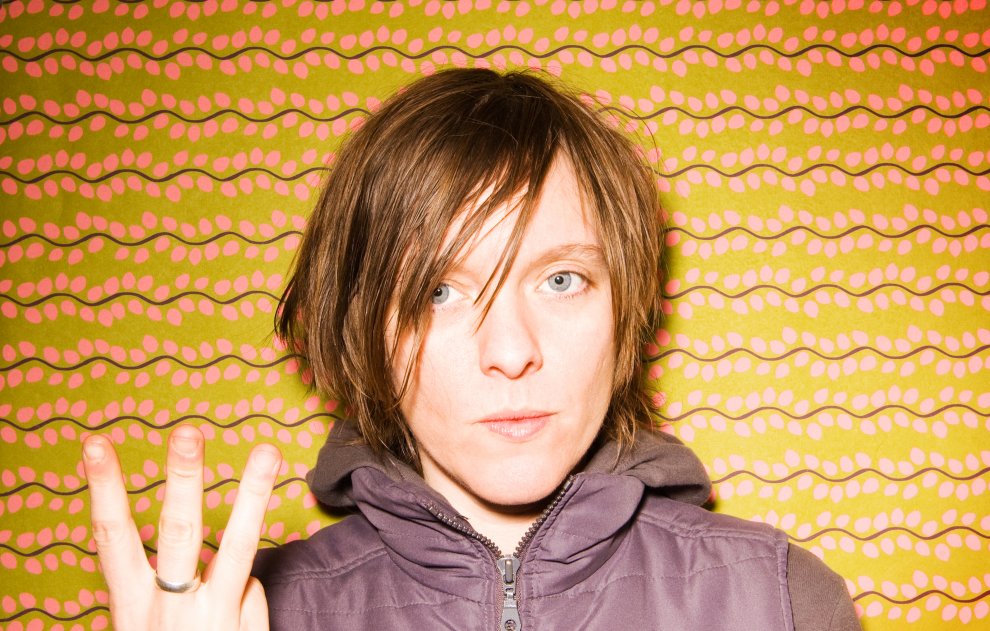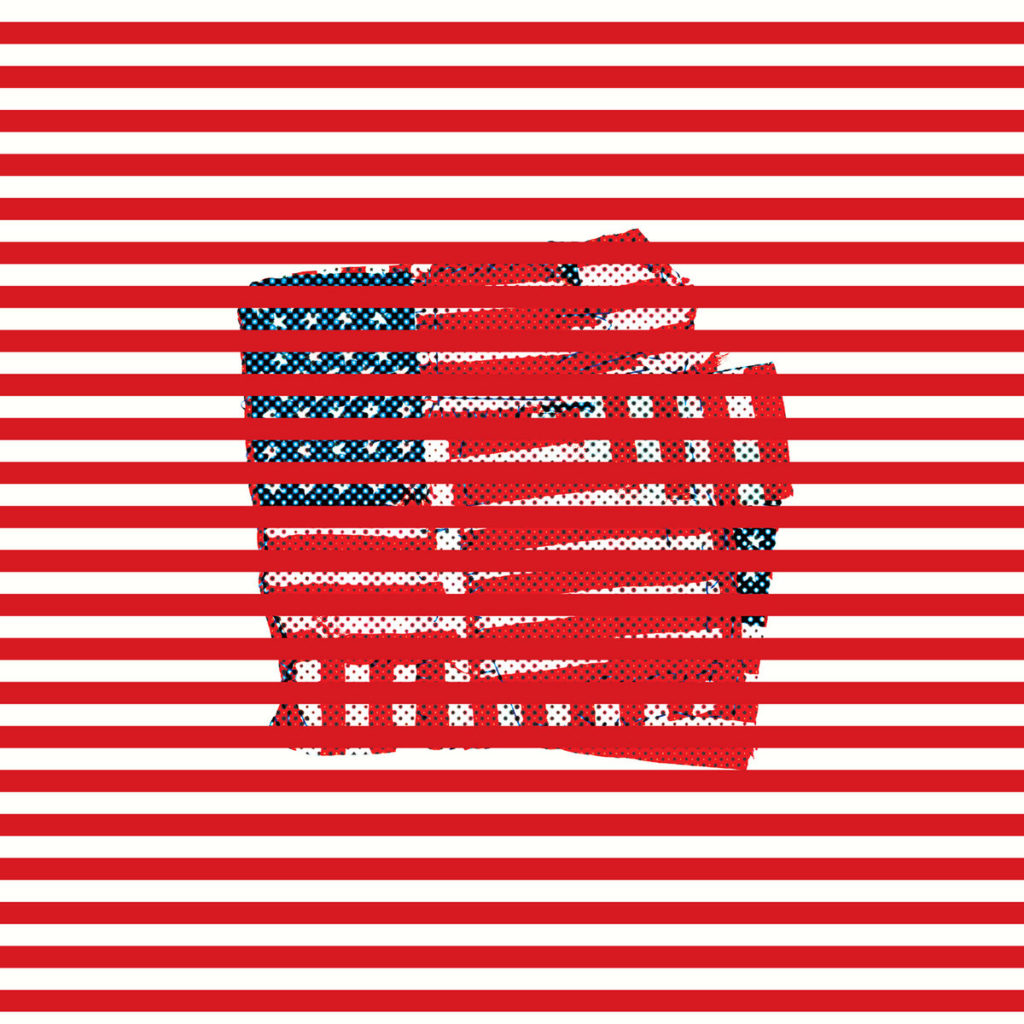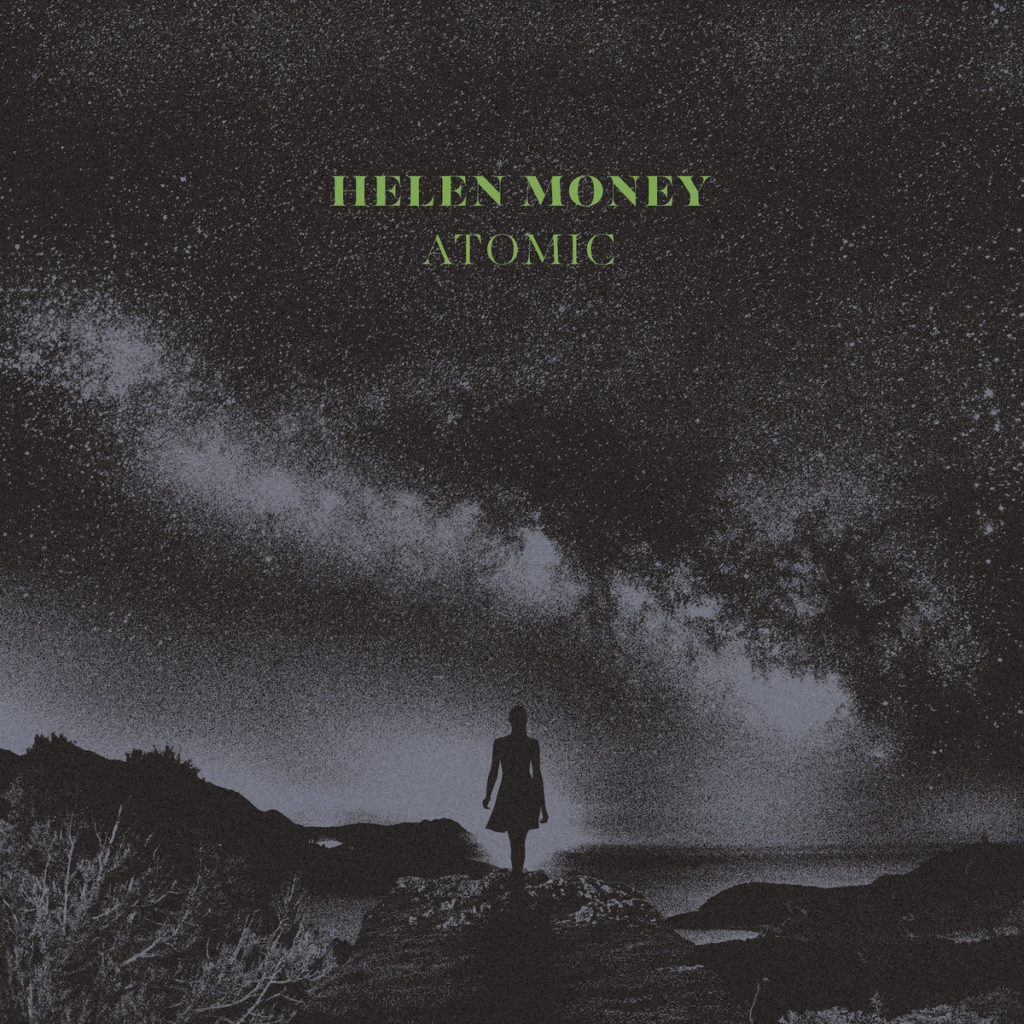You don’t just ask Adam Gnade a question or plot a sure-footed route into the familiar territory of the Q&A back-and-forth, that sometimes-fluid, sometimes-stilted dance between the interviewer and the interviewed.
Speaking with Gnade – the traveling indie-musician and wordsmith whose Run Hide Retreat Surrender was one of 2005�s unanticipated gems – is more like opening a door or unfolding a scrap of hand-pressed paper to discover an encrypted novel tucked within it.
Even the most casual asides suggest deeper truths are lurking around the corner, the wandering tangent instead transformed into a subconscious narrative arc.
Gnade’s casual conversations, then, are much like his music: stream-of-consciousness story-songs that unfurl like photographic sequences, like a panoramic landscape seen in passing from a passenger window. Delusions of Adequacy recently spoke with Gnade by e-mail, over the span of several weeks, about his knack for storytelling, “experimental-folk,” and the deconstruction (and reconstruction) of American music.
Delusions of Adequacy: Your narratives differ a great deal from your contemporaries, in form and tone and initiation. Tell me, what came first for you when you started working as a spoken-word artist/musician – the texts or the ideas for the music that accompanies them? Did you develop in both forms and disciplines simultaneously, or did the written word come first?
Adam Gnade: Before I say anything, I should mention that I don’t consider this stuff spoken-word, a genre I’ve never had much love for. I’ve always just been a fan of non-traditional vocals. “Singing” for me never meant what singing is traditionally thought of as. I think of my vocals as normal vocals. I call this music “talking songs” and think it fits into the experimental-folk a lot of my friends are making right now. I spent last week in Texas with Ray from Castanets, Jana Hunter (who’s got an incredible record on Devendra’s label), and Red Hunter from Peter and the Wolf. (The thought of it hurts and makes me miss them and makes me nostalgic, something I’ve never been before. Always considered nostalgia a dead emotion and a waste of time.)
Talking and wandering and drinking with them reaffirmed for me that things like singing and folk music and music in general don’t have to sound a certain way. Doing something different always polarizes people (look at the great love/hate divide people have for Devendra or Joanna Newsom’s music), and I get a lot of people that really hate what I do, which hurts me pretty intensely. But the rewards are so much greater, the rewards being the feeling that you’ve got a process ahead of you, something to try to attain.
I don’t know where this music is going, but my idea of what it is and what it needs to be changes every day. The new EP will be closer to standard song structures since I’ll be playing guitar on most of it, and since the songs don’t connect in a linear narrative like Run Hide Retreat Surrender. (I see this new EP as deconstructed American music: rock ‘n’ roll, old blues, folk, noise, everything pasted together and then knocked down again and set back up and stuck together with scotch tape and pieces of shoelace.)
I have a month to do it (for Drowned in Sound in the UK, who just signed me and that band Metric, crazy), but I’m already terrified of what lies ahead and absolutely paralyzed about taking the first step and laying down the first tracks. (Without many reference points on making music like this, I’m more or less adrift and held together only with confidence in my ideas, which comes and goes. A big daily battle. Some days everything seems hopeless and I want to die. But others the sun shines and I feel light inside me. Those days it comes right out your eyes and it’s blazing and apparent to everyone.)
So, most of the EP is written. The lyrics and music come at the same time, at least acoustic versions, anyway. But there’s a lot I need to do with it before it’s done. I want the record to have the feeling of organic decay, of being lost in a wine bottle, of celebrations, and of ice melting and cracking in spring and the raw, empty feeling you get when you wake up in a new town and aren’t sure where you are or why you’re there. I’m writing this novel and the EP at the same time. They share characters, so I’m neck-deep in this story, and in the character’s lives. Sometimes it feels like being at the bottom of a well. Sometimes it feels like being surrounded by friends that love you and understand you and believe in you unquestioningly.

DOA: Writing and recording that new EP sounds like a tall order. Tell me more about how you’ve developed these ideas about deconstructing and reconstructing American music. Do these sorts of structural approaches come from writing experience and exercises like the novel?
Don’t mean to keep trying to blur the lines between disciplines if you see them as wholly separate, but it’s interesting to hear you speak in sometimes-interchangeable terms about your musical texts and your written texts.
AG: Yeah, I definitely see the writing and music as interchangeable, which was a big problem when I was first starting out. I wanted to do music and writing, but the things I was writing about – my themes and characters – were so different from each other I felt like I had two separate people inside me, two separate voices, that I had to get “into character” to do either one, and that if I wasn’t ready to make the switch, everything would come out awkward, phony, and skewed. It made me feel crazy and horrible and I thought for the longest time that I was losing it, that I was finally going off the deep end.
But I realized quick that wasn’t an honest way of making art and that anything I’d do would be forced and fictionalized and too thought-out. So, I quit music. For a long time. Actually up until we recorded this record and a little while afterward, when the thing was done and I was sitting around in Kansas thinking, “What the fuck am I going to do with this?”
Getting signed to Loud + Clear gave me some faith, because before that I’d just made records for friends. I didn’t think anyone would ever give a shit. As soon as they got a hold of me last year and we talked about me signing with them and doing a US tour, it all made sense. I realized that I could do music and writing and do them both prolifically, if I just let them intermingle as much as possible, let the stories cross over and let the characters mix, and not try to define myself as a “writer” or “musician” or “artist.” Art is so much about being a spectator, but I can’t live that way. I’d rather just be a “guy” that lives out in the world, lives as unconsciously as possible, doesn’t intellectualize anything, puts myself out there, and doesn’t worry about “the story.” The story will come later. It always does. And when it doesn’t, it’s time to move onto something else.
My ideas about deconstructing American music came because I was dissatisfied with genres. I didn’t think my stuff was spoken-word, and, just the same, I didn’t want to make traditional vocal/instruments music. But still I wanted all the normal things too: a band, regular ol’ instruments, elements of all the American music I grew up loving: folk, blues, ’50s rock ‘n roll, jazz, punk rock, mountain music, bluegrass. So a rewriting of the model was in order. It needed to be familiar but also off-putting. My newer stuff, the singles and the EP are getting there. They’re close. The sound that exists in my head, the proverbial “in-my-head” thing most music makers have, hasn’t come out in reality yet, but I think it will soon. God, I hope it will. If it doesn’t, I dunno. Shit. It’s scary. I don’t want to fight and rethink everything all my life. When I’m writing or playing music, I’m trying to bring it to its realized version and learn about American music, co-opt its aesthetics, but articulate it differently. I want to give people something new. I’m not doing that yet. It’s not near where and what it should be, but I’m trying.
But, to answer the other part of your question, I don’t think the structure I’m working towards came from any writing experience. It’s from listening to a lot of old music and having friends that play new forms of American music and being inspired by what they do and their big, weird brains. Also, traveling around the country created a lot of my ideas because I want this music to sound like America, the speech of people in rural towns, regional music, city rhythms, kids feeling like they need to get the fuck out of their dead-end hometown, evocations of weather and smells and earth sounds and nature. When you’re traveling America, you hear a lot of people say a lot of things. Radio is there, too. Music is there, too. Singing is there, too. But my songs might be seen as something you hear at a party or in a living room or bar or restaurant: people talking, ambient noise, nature noise.

DOA: An interesting question, though perhaps one that’s a bit more concrete than intellectual or emotive. What sort of work do you do day in and day out? Your “work” – as in, I suppose, the content of our conversations – seems to engulf you (and the constructed/public “Adam Gnade”) in so many ways and to tap deeply into your personal experiences. How or how much does this figure into day-to-day routines and life? I guess, in the most direct way, how full-time are your adventures as a writer and musician?
AG: For the past couple years, I’ve been living off freelance writing money and either traveling full-time or keeping a house or an apartment somewhere and traveling half the time, but since getting back from our first tour in November, I’ve moved to Portland and have been working for the Portland Mercury, writing about music. Besides the fact that they don’t give a shit about standard, AP-style, objective, by-the-numbers journalism, which makes it a fun environment to be a part of, it’s also a great position to be in because they’re fine with me taking off time to travel or tour and are more or less into me doing whatever I need to, as long as I get my work done. It’s a weekly paper, and I’m only in charge of the music section, so the workload isn’t as inhumanly intense as the magazine I talk about in Run Hide Retreat Surrender, where I was the editor and spent all day at the fucking thing. So they treat me well, really well.
I work there for a while everyday – in and out of the warehouse we work out of – and then we’re usually either practicing, “we” being my regular band-mates, whom I live with, writing songs together. Or I’m working on book stuff or related writing. Weekends, work-wise, are either record or book. I used to freelance a lot, but I have a hard time writing for magazines I don’t believe in, so I’ve cut a good bulk of that out. But I’m very much into artistic discipline and make myself work whenever I’m home. I don’t watch TV or have any other big, real hobbies or anything like that. My home life, besides living with my band, which can be a strange endless party sometimes, is very monastic.

DOA: How do you balance the time between the music, freelance writing (or financial means of sustenance), and your novel? And, while we’re on said subject, tell me about this novel of yours.
AG: There isn’t much of a balance to tell the truth. I don’t have a schedule per se. It’s more or less what feels right at the time. At the moment, I’m not freelancing much at all because we’re getting this record ready for Drowned in Sound. Lately it’s been all songwriting and messing around with instruments to find riffs and changes. But as soon as this is done, who knows? I’d like to take a break, but most likely the break won’t involve art of any kind.
The work on the novel is pretty much continuous. I’ve always believed to do a good job at a bigger project, something that’s going to take an extended amount of time to finish, you need to let it consume you. So I work on the book all the time. While walking around town, late at night, in the morning, whenever it hits me. But as far as what it’s about, I’ve always been wary of talking too much about a story and letting it talk itself out. I’m superstitious about these kinds of things.
DOA: Wanted to end with the look forward. What’s next for you?
AG: As far as future stuff goes, I just recorded a track for this new band Dave Allen from Gang of Four and Danny Seim from Menomena are doing. Came out great. Also I’m working on a split LP with Argumentix and putting together ideas and demos with Thad Christian for our next full-length. Oh, and our split with Gang Wizard came out yesterday on DeathBombArc. I’ve also been doing some band bios for friends’ bands to take my mind off the book. Just finished one for Festival of Dead Deer and for the new Locust/Plot to Blow Up the Eiffel Tower/Friends Forever/Moving Units band, Ground Unicorn Horn. I did one for Castanets, and I’m just about done with one for Xiu Xiu’s new album, which is amazing, really beautiful and gentle. Reminds me a lot of the Dirty Projectors, who I think are making some of the best, craziest, smartest music around. (Been laying in bed a lot late at night and just listening to their shit in the dark and laughing my head off.)
Besides that, my friend Zach is moving to Mexico City tomorrow, and that’s all I can think about. Living out there. Maybe for a few months. He said once he gets settled, “show up any time” and all that, so maybe. My Spanish is good, and I’m ready for big city action. I saw Mexico City once, standing on the – what do you call that? – the stairs leading up to an airplane and looked out across it and fell in love. All those rooftops. Felt like home. So, I don’t know, maybe that’s next. – Delusions of Adequacy July 10, 2006




